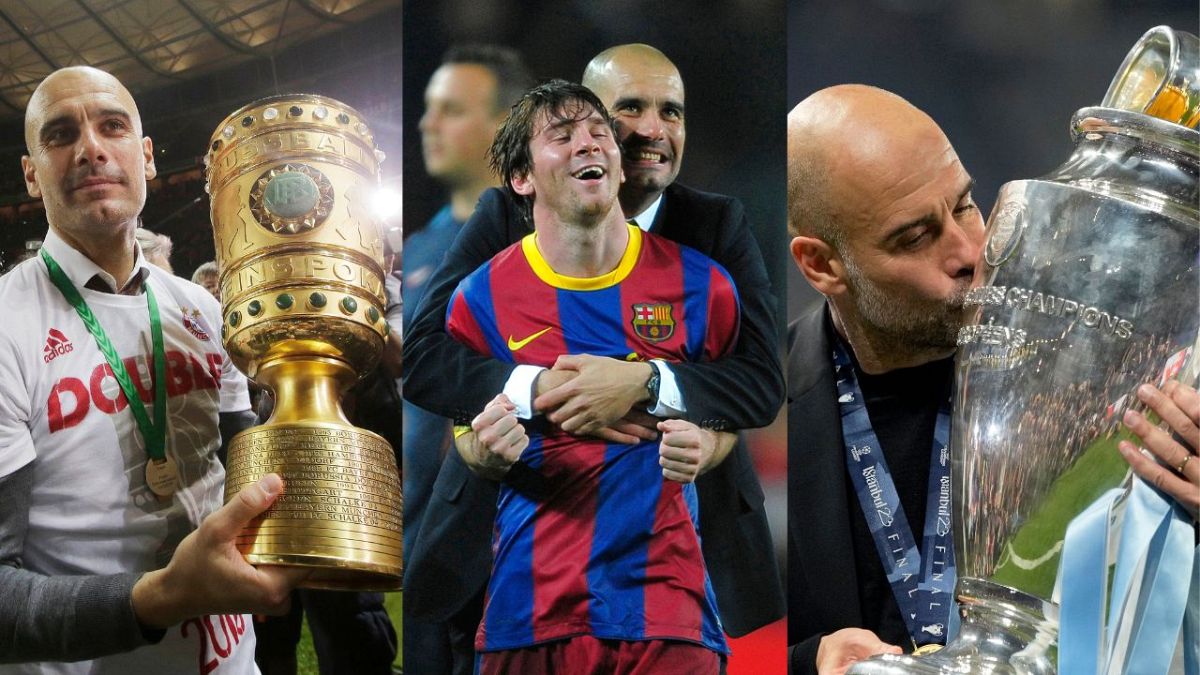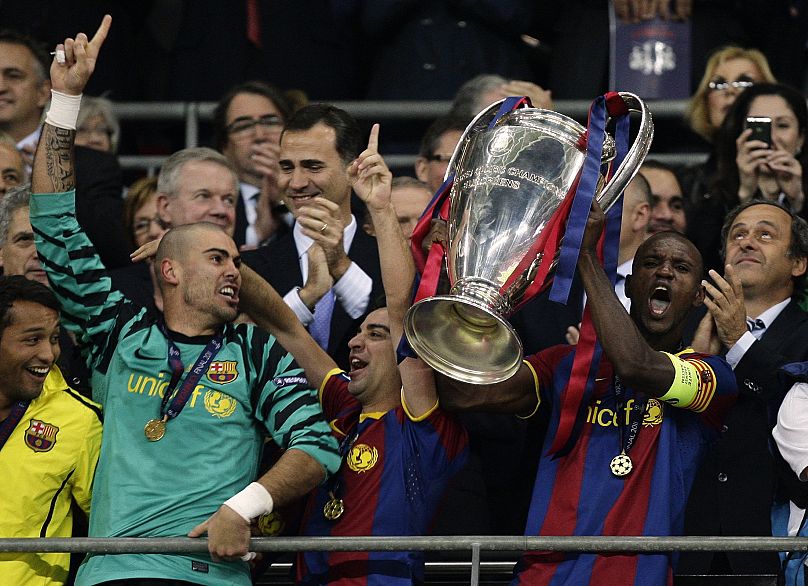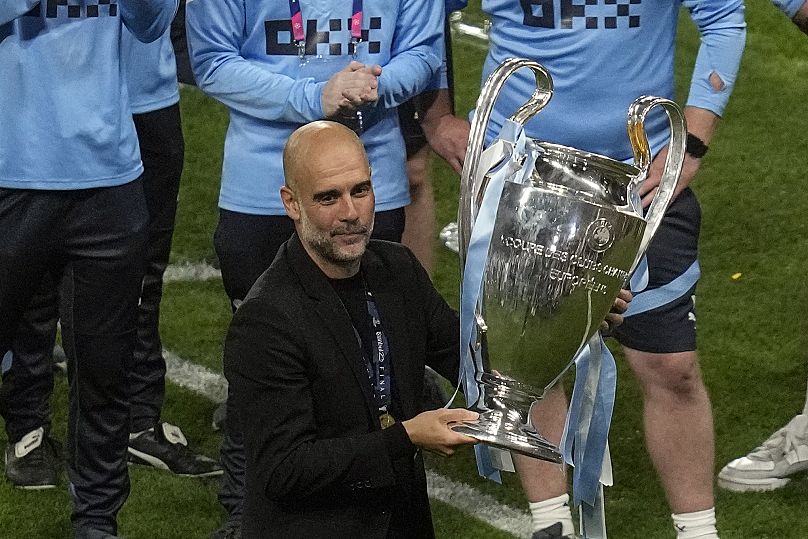With successful stints at three of Europe's biggest clubs and a remarkable ability to work closely with some of the world's best players, Pep Guardiola's impact on football cannot be overstated. In partnership with Media City Qatar.
Barcelona. Bayern Munich. Manchester City. With successful stints at three of Europe's biggest clubs and a remarkable ability to work closely with some of the world's best players, Pep Guardiola's impact on football cannot be overstated. His tactical brilliance and relentless pursuit of excellence have not only led to numerous honours for his teams but have also inspired and influenced other coaches around the continent.
Guardiola's journey as a manager began after retiring as a player for his boyhood club, Barcelona, in 2006. Just a year later, he took up a coaching role at Barcelona's famous La Masia Academy, quickly making a name for himself as a youth coach by achieving promotion in his only season in charge. In May 2008, Barça president Joan Laporta announced that the first team coach at the time, Frank Rijkaard, would be departing and Guardiola would take his place.
There was downplayed excitement at his appointment, but no one could really foresee the success that would follow. A perfect storm of not only Pep’s tactical brilliance, and inheriting one of the best developing squads the game has ever seen, brought unprecedented glory. His squad contained some of the most talented names to play in the modern era, including Lionel Messi, Carles Puyol, David Villa, and the famous midfield trio of Xavi, Iniesta and Sergio Busquets.
In his first season as the first team coach, Guardiola led Barcelona to an unprecedented treble and a total of six trophies in 2009. Over the next four seasons, he accumulated 14 trophies, with his team's ‘take the ball, pass the ball’ philosophy being perfectly encapsulated in the 2011 Champions League final at Wembley stadium. The performance that year against Manchester United is widely regarded as the greatest team performance in a European Cup final of all time, as they won 3-1 to win their fourth trophy in club history.
“I think that is the closest to perfection on a football pitch I have ever seen, in terms of a team executing their style, the way they play,” explained La Liga TV presenter, Semra Hunter.
“They were a machine. Hardly any mistakes, and that really was a sign of what was to come from Pep teams through his career.”
Seeking a new challenge, Guardiola moved to Bayern Munich in 2013. His three-year tenure in Bavaria was marked by tremendous success, with the team winning seven trophies, including a domestic double in 2014. The missing piece of the puzzle at Bayern became the Champions League. Despite them winning it just before he arrived in 2013, he couldn’t pick it up again with the German side, and couldn’t reach a final, either. His side were beaten badly by Real Madrid in the semi-finals in 2014, and it was Real’s city rivals, Atletico, who knocked them out at the same stage in 2015.
“I think at Bayern, there was a clash in terms of the culture,” Hunter continued.
“Guardiola is very intense and I’m not sure the players wanted to play in his style. It’s attacking football, there’s no doubt about that, but it’s not as direct as Bayern Munich are used to playing. He plays possession-based football, a lot of passing, and you have to have the right players to do that. So I think for that, and probably other reasons as well, Pep and Bayern were not a great match”
In 2016, Guardiola made his way to Manchester City, where the hype and expectations surrounding his arrival were sky-high. It took a year for him to adapt to the Premier League though, as he suffered the only trophyless season of his career to date in the 2016/17 season. However, once he got things right, City played football unlike anything we have ever seen in England. Under Guardiola's guidance, the team has won five Premier League titles in six seasons, including a record-breaking 100-point tally in 2018 and a historic treble in the 2022/23 season, a feat only matched by Sir Alex Ferguson's legendary Manchester United side of 1999.
What sets Guardiola apart is not just his impressive collection of trophies but also his impact on the game itself. His obsession with football and tactical brilliance have made a significant difference in tight league title races and cup finals.
While many fans would argue that Guardiola is the greatest manager of all time, it is essential to acknowledge the other great managers throughout football history who could stake a claim to that title. Figures such as Johan Cruyff, Arrigo Sacchi and Sir Alex Ferguson have made significant claims for that title over the decades, however Guardiola's unique genius and his ability to continuously adapt and evolve make him a truly exceptional manager.
Pep Guardiola's impact on football is undeniable. His success, coupled with his tactical brilliance and influence on other coaches, solidifies his place among the sport's greatest managers. While the debate about the greatest manager of all time will always continue, Guardiola's name will always be synonymous with innovation, excellence, and a relentless pursuit of footballing perfection.



